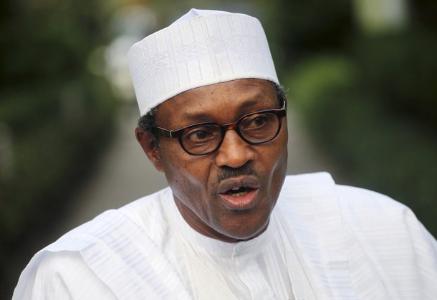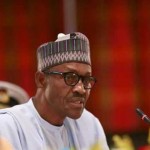Group Challenges Buhari To Implement 5 Point Programme Against Corruption
Latest Headlines, News Friday, April 10th, 2015
The Socio-Economic Rights and Accountability Project (SERAP) has challenged the president-elect, General Muhammadu Buhari to implement a 5-point programme against corruption if he is to send a strong signal of change and ensure improved governance throughout the country.
In a statement on Thursday signed by SERAP’s Executive Director, Adetokunbo Mumuni, the organization said that the biggest obstacle to reconstruction and development in Nigeria is corruption, saying for many years, systemic corruption has distorted incentives, undermined critical institutions of governance, slowed economic progress and redistributed wealth and power to the undeserving.
“No wonder the percentage of Nigerians living in poverty has continued to rise. Today, the level of confidence in Nigeria is low but there is clearly public enthusiasm that the incoming government will be able to bring about a society that serves its people’s interests,” the organization said.
“Nigerians have heard plenty of rhetoric about corruption and now is the time to take concrete action to combat the problem. SERAP urges the president-elect to consider and implement the following 5-point programme against corruption to make sure that Nigeria does not drop deeper into a pattern of corruption and impunity of perpetrators,” it said.
The 5-point programme reads in part: “The president-elect must appreciate the legacy of systemic corruption, its human rights costs; and anticipate the scale and challenges of reconstruction. First, the president-elect should demonstrate the political will to prevent and combat corruption not only within his presidency but also at all levels of governance. His strategy should reflect the importance of transparency, accountability and participation.”
“As a first step, the president-elect should immediately after 29 May, 2015 demonstrate his total rejection of corruption by publicly declaring his assets and publicly instructing all members of his government to do the same. Second, to break through a culture of corruption, the president-elect should not shy away from “frying big fish” including members of the National Assembly and regardless of the political party they may belong. The president-elect should promote and ensure the naming and punishment of big corrupt politicians so that a cynical citizenry can believe that his anticorruption drive is more than words. Such prosecutions can send a powerful signal of change.”
“All unresolved cases of corruption including in the aviation, oil subsidy scandal, alleged mismanagement of trillions of Naira by the Security and Exchange Commission, missing N300 billion in the petroleum ministry since 2011; and others should be urgently and satisfactorily addressed,” it stated.
“Nothing will kill public confidence quicker than the belief that the anticorruption drive is directed only at those below a certain level in society. But it is also important that a campaign to combat corruption is not confused with a campaign against the opposition.”
“Third, the president-elect should also prioritise prevention of corruption by carrying out reforms of institutions of governance including the judiciary, the police, anticorruption agencies, and the regulatory authorities on electricity. To build momentum, the president-elect should begin his anti‐corruption campaign where citizens perceive it to be most evident.”
“Fourth, the president-elect should be able to mobilize other actors and invite those outside of politics to become part of the solution. Only collective action and credible systematic reform can end the problem of corruption. Citizens should be part of the solution. The president-elect should also be able to mobilize international support in the fight against corruption, including the diagnosis of corrupt systems and institutions.”
“Finally, the president-elect should lead the process to domesticate and effectively implement the UN Convention against Corruption within the legal system.”
“The president-elect should publicly endorse the global initiative for an International Anticorruption Court (IACC) to demonstrate their expressed commitment to satisfactorily address corruption and impunity of perpetrators. Given that many Nigerians have lost faith in the ability of successive governments to combat high-level official corruption and money laundering, an IACC could erode the widespread culture of impunity and contribute to creating conditions conducive to the democratic election of honest officials in a country with history of grand corruption.”
“Ultimately, the president-elect should work hard to reduce monopoly of government’s institutions, limit and clarify discretion and increase transparency and accountability at all levels of government. The objective should be to empower Nigerians, to enable them to overcome poverty and insecurity, and enjoy the basic necessities of life that citizens of civilized countries take for granted,” it added.
Related Posts
Short URL: https://www.africanexaminer.com/?p=23133






















